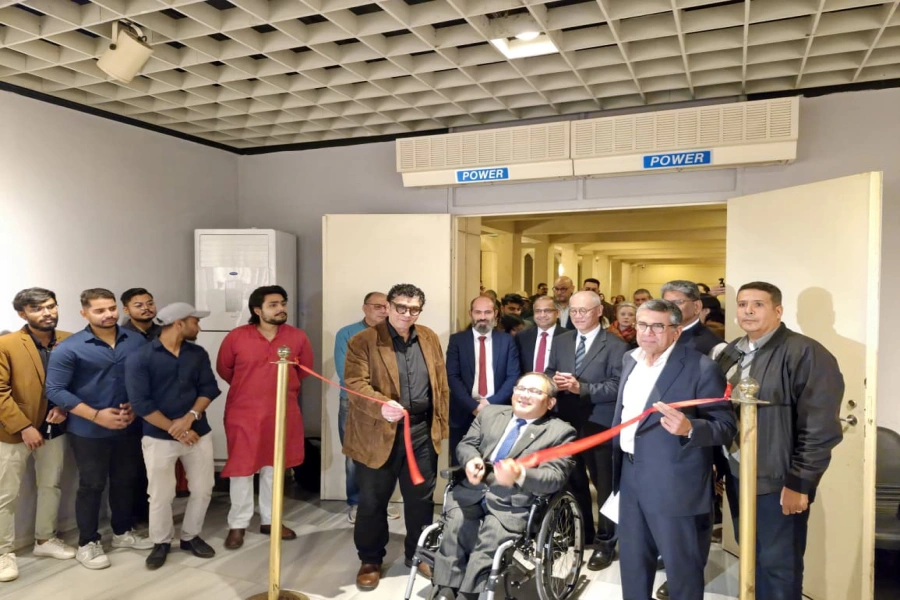SEOUL, SOUTH KOREA, March 2: Virus cases in South Korea surged and millions of children in Japan stayed home from school Monday as officials struggled to contain the epidemic in more than 60 countries, including the United States, where two people have died and signs of a bigger outbreak loomed.
As new battlefronts against the coronavirus opened with surprising speed around the globe, recovered patients left China’s hastily built hospitals and isolation wards, freeing up patient beds in the city where the COVID-19 illness has hit hardest.
China, where the epidemic began in December, reported only 202 new cases over the previous 24 hours with another 42 deaths. That brings the country’s total number of reported cases to 80,026 with 2,912 deaths in all. The city of Wuhan accounted for most of the new cases, but also saw 2,570 patients released.
Monday’s increase was China’s lowest since Jan. 21. China still has about three-fourths of the world’s nearly 89,000 cases worldwide, but outbreaks were surging in other countries, with South Korea, Italy and Iran seeing sharp increases.
The United States counted 80 cases as of Sunday and two deaths, both men with existing health problems who had been hospitalized in Washington state. The U.S. total includes evacuees from a virus-stricken cruise ship and from Wuhan, but new cases among California health workers, in New York, Rhode Island and Washington raised concerns on both U.S. coasts.
The second U.S. fatality was a man in his 70s from a nursing facility near Seattle where dozens of sick people were tested for the virus, Washington state health officials said. Researchers said earlier the virus may have been circulating for weeks undetected in Washington state.
Hospitals stop admitting COVID-19 patients as govt sets quota o...

Indonesia confirmed its first cases Monday, in two people who contracted the illness from a foreign traveler.
In South Korea, at a hastily arranged news conference, the 88-year-old leader of the Shincheonji church, a religious sect which has the country’s largest cluster of infections, bowed down on the ground twice and apologized for causing the “unintentional” spread of the disease.
“I don’t know what words of apology I should offer. ... We also did our best but weren’t able to contain it fully,” Lee said, wearing a white face mask. “We immediately cooperated (with quarantine efforts), but there’s really nothing I can say.”
Lee’s church is viewed by mainstream Christian organizations as a cult. As he spoke Monday, some people shouted “Cult” and “Disband the Shincheonji church.”
South Korea on Monday reported 599 new cases for a total of 4,335, most of them in the southeastern city of Daegu and nearby areas. A total of 26 people have died. More than half of the cases have links to a Shincheonji branch in Daegu. The city’s first known patient is a church member who attended services before being diagnosed with the disease on Feb. 18. Before her case was confirmed, South Korea had reported only 30 cases.
South Korea’s surging outbreak has overwhelmed its health system. At least four infected elderly people have died in Daegu while waiting to be hospitalized.
Kim Gang-lip, South Korea’s vice health minister, said hospitals’ capacities from now on will be reserved for patients with serious symptoms or preexisting medical conditions, while mild cases will be isolated in designated facilities outside hospitals.
“Considering our limited medical resources, it will be crucial to make quick assessments of patients’ conditions and provide quick, professional and active treatment to those with serious symptoms and minimize fatalities,” Kim said. “If we continue to hospitalize mild patients amid the continued surge in infections, we would be risking overworking medical professionals and putting them at greater risk of infections.”
South Korea’s education minister, Yoo Eun-Hae, said the start of the new school year will be delayed by two more weeks until March 23. South Korea previously delayed the start by one week.
A sense of a burgeoning crisis around the globe has sent financial markets plummeting, emptied major streets and tourist attractions and forced millions of people to adjust their daily lives.
In Japan, many schools began following through on Prime Minister Shinzo Abe’s plan to close them for more than a month through the end of the Japanese academic year.
While the virus has caused serious illness mainly for the elderly and those with existing health problems, most patients have had mild cases and some infected people apparently show no symptoms at all.
But attempts to contain the spread of the virus have been far-reaching.
The Louvre Museum was closed after France curbed large gatherings, and the U.S. issued an advisory against travel to the region of northern Italy where its outbreak is concentrated. The outbreaks and rising travel concerns could deal a heavy blow to those countries’ tourism industries. Spring, especially Easter, is a hugely popular time for schoolchildren to visit France and Italy.




-1200x560-1771928761.webp)



































